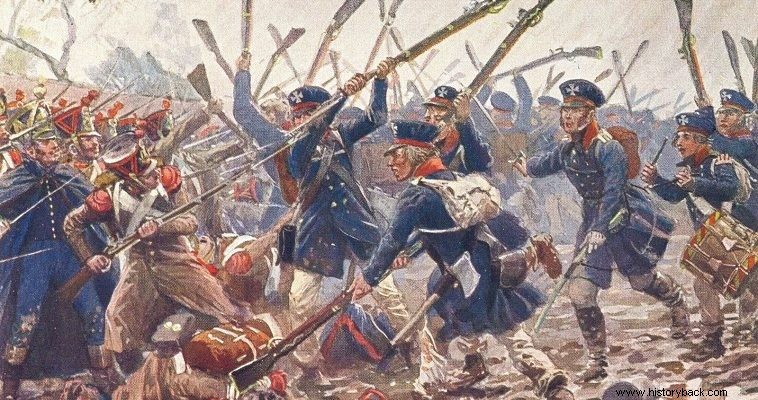
After their victory at Waterloo, on June 18, 1815, the armies of Wellington and Blycher marched on Paris. Old Blycher maneuvered superbly, and after crossing the Seine at Saint Germain, he brought the army to the south side of the city where the French did not expect him and were not prepared to meet him.
In the French camp there was tension and division with accusations being hurled at the defeated Napoleon for not fortifying the capital. The French threw every available force into stopping the Prussians. They even prevailed in a skirmish near Versailles. On July 2, 1815 the Prussian 1st Army Corps of General von Chitten was deployed in the wider area of Versailles.
The Prussian general on the same day moved towards the heights of Mendon and Châtillon which he occupied despite French resistance, as well as the village of Issy . In this conflict the French lost 3,000 men.
In the evening, at a council of war held in Paris, the participants concluded that Paris could not be held. The exception was Napoleon's best field marshal, Nicolas Davou, who argued that one more attempt should be made.
The battle
Around 03:00 on the morning of July 3rd, General Vandam's French 3rd Army Corps moved in two phalanxes towards Issy. Vandam also had a significant number of cavalry and he placed his artillery in a key position. The battle began with heavy shelling of the Prussian positions in the village by 20 French guns.
As soon as the bombardment ceased the French infantry rushed out. The Prussians had built some rough fortifications which, however, did little to protect them from the French artillery. Nevertheless the Prussian soldiers of the 12th and 24th Infantry Regiments, together with the 2nd Westphalian National Guard Regiment, supported by three 12 pdr guns. (pounds) really fought heroically.
Casualties were heavy on both sides but the Prussians held out and the French retreated. But soon they launched a new attack with more men. The 1st Prussian 'Brigade' (division actually - the Prussians had adopted their own terminology) now bore the brunt of the French attack alone . Chitten immediately ordered his 2nd Brigade to intervene and asked Blycher to reinforce him with von Billoff's 4th Army Corps and Tillmann's 3rd Army Corps, which would move to threaten the French left flank.
At the same time, however, the French attacked again. But again the defending Germans proved to be invincible. The French fell back, massed their artillery against the burning village and attacked again only to be repulsed with casualties. After the failure of Vandam he judged it expedient not to persist any longer and ordered a retreat .
The Prussian light infantry followed the retreating French to the gates of Paris. The last battle of the Napoleonic Wars had ended and the French were the vanquished. The defeat resulted in the French capitulation. A French envoy went to Chiten's command post in the evening, offering him the surrender of Paris and asking for an armistice.
The formal agreement was signed in St. Cloud in the presence of Wellington and Blycher. Napoleon had already, since June 24, announced his resignation. Unable to escape, he finally surrendered to the British on July 15, 1815.
